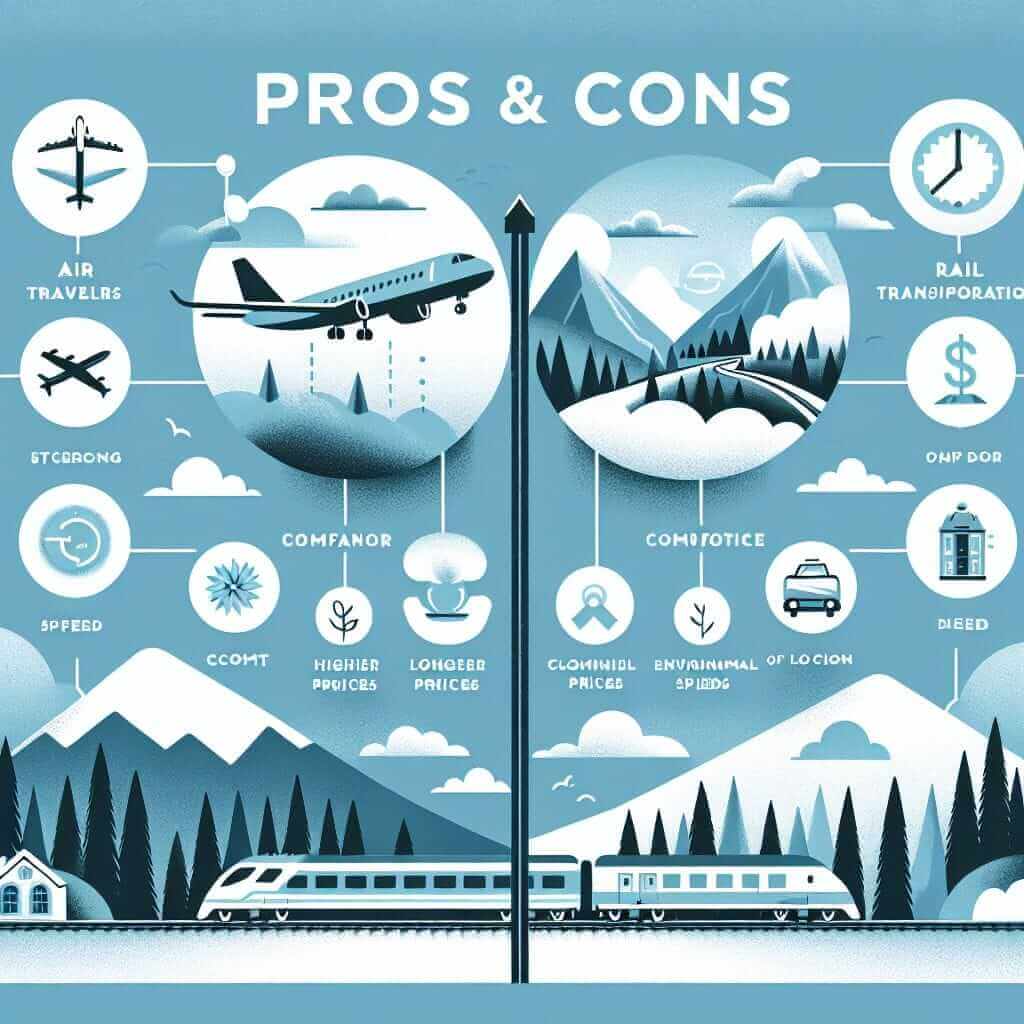The Importance of Comparison Topics in IELTS Speaking
The IELTS Speaking test assesses your ability to communicate effectively in English. One common question type requires you to compare and contrast different modes of transport, often focusing on their advantages. Understanding how to effectively compare and contrast, using appropriate vocabulary and structure, is essential for achieving a high score.
Planes vs. Trains: Key Advantages
When comparing planes and trains, consider these factors:
Speed and Efficiency:
- Planes: Undeniably faster for long distances, saving significant travel time.
- Trains: Can be faster for shorter distances, especially when factoring in travel to and from airports.
Comfort and Convenience:
- Planes: Offer varying classes of service, from economy to first class, with amenities like in-flight entertainment. However, legroom can be limited, and security checks can be time-consuming.
- Trains: Often provide more spacious seating and the freedom to move around. They may offer scenic views and onboard services like dining cars.
Cost:
- Planes: Ticket prices fluctuate greatly depending on the route, time of year, and demand.
- Trains: Generally more affordable than planes, especially for shorter journeys.
Environmental Impact:
- Trains: Typically more environmentally friendly than planes, producing fewer emissions per passenger.
- Planes: Contribute significantly to carbon emissions.

Sample IELTS Speaking Question:
“Compare the advantages of travelling by plane and travelling by train.“
How to Structure Your Response:
- Introduction: Briefly state your understanding of the question. Example: “Both planes and trains have their own unique advantages as modes of transport.”
- Compare Points: Choose 2-3 key points of comparison (e.g., speed, cost, comfort). Use clear language and comparative structures:
- “While planes are significantly faster for long-haul flights, trains can be a more efficient option for shorter distances.”
- “In terms of cost, trains are generally more affordable, especially for budget-conscious travellers.”
- Provide Examples: Use specific examples to support your comparisons:
- “For instance, a flight from London to Paris might only take an hour, but factoring in travel to and from the airport, security checks, and potential delays, a train journey could be quicker overall.”
- Conclude: Offer a brief summary or personal preference (if the question prompts it). “Ultimately, the best mode of transport depends on individual needs and priorities, such as budget, time constraints, and the distance to be travelled.”
Tips for Success:
- Use a Range of Vocabulary: Demonstrate your language skills by using synonyms for “advantage” (benefit, plus, upside). Employ comparative adjectives (faster, more convenient, less expensive).
- Focus on Fluency and Coherence: Speak clearly and at a natural pace. Use connecting words and phrases (however, on the other hand, in contrast) to ensure your ideas flow smoothly.
- Practice Makes Perfect: Rehearse answering similar comparison questions using the strategies outlined above.
By following these guidelines, you can effectively compare and contrast the advantages of planes and trains in your IELTS Speaking test, demonstrating your language proficiency and boosting your overall score.